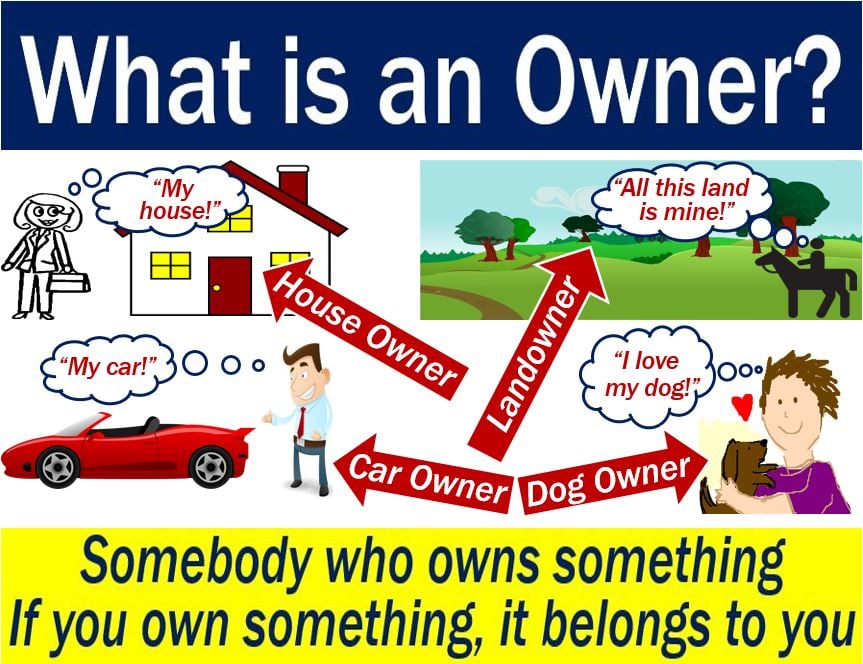Have you ever stopped to ponder who truly holds the reins of one of the planet's most recognized snack foods, the triangular, cheesy delight known as Doritos? It’s a question that, you know, pops up when you're munching away, perhaps thinking about where your favorite chip comes from. For many of us, it might seem like a simple answer, yet the truth behind the ownership of such a widespread brand is a bit more involved than just a single person or a small family business.
Unlike, say, a house that's listed "for rent by owner," where you might easily find the person who has the legal or rightful title, a massive global brand operates differently. It’s not just one individual holding the keys to the kingdom. Instead, the ownership structure is often layered, reflecting the vast operations and market presence of such a product. We’re talking about a significant entity, one that manages a whole collection of well-known items.
So, who exactly is behind Doritos? We're going to pull back the curtain and look at the corporate structure that makes sure those chips keep arriving on store shelves, from their creation to their current standing as a snack icon. It’s a story of growth, mergers, and the very concept of what it means for a large organization to "own" something as beloved as a bag of crunchy triangles.
- Robert De Niro Wife
- Paige Price
- Alain Fabien Delon Jr
- Amel Larrieux Discography
- Is The Conjuring Based On Real Events
Table of Contents
- Unwrapping the Ownership of Doritos
- How Did Doritos Come to Be Owned by a Giant?
- The Corporate Parent - Who is the Owner of Doritos' Parent Company?
- What Does it Mean for a Brand to Be Owned?
- The Global Reach and Business Acumen Behind Doritos
- What Makes Doritos So Popular Under Its Current Ownership?
- The Financial Side - What Happens When Doritos Makes Money?
- The Future of Doritos - Will the Ownership Change?
Unwrapping the Ownership of Doritos
When someone asks, "who is the owner of Doritos?", it's a very good question, yet it doesn't have a simple, single-person answer like asking "are you the owner of this car?". Unlike a private landlord who has a house for rent by owner in McKinney, Texas, and is clearly the one to whom that property belongs, a brand like Doritos is part of a much larger corporate family. The actual owner, the big company that holds the legal or rightful title to the Doritos brand, is PepsiCo. This massive food and beverage corporation, you know, stands as the ultimate parent entity for these well-loved chips. It's a bit different from someone owning a small business; this is about a global powerhouse.
So, while you might think of Doritos as its own thing, it’s really just one piece of a much bigger pie. PepsiCo, as the primary holder, controls everything from the recipe and production to the marketing and distribution of Doritos. It's not a matter of finding a single individual with a deed, but rather understanding the corporate structure that grants a company the legal right to possess, use, and even convey such a valuable product. This kind of ownership, in some respects, is far more complex than the ownership of a single-family house, which is pretty straightforward.
The concept of ownership here extends beyond just physical items. It includes intellectual property, brand recognition, and market share. PepsiCo, as the corporate owner, has the responsibility and the benefit of everything Doritos represents. It's quite a different picture from a personal possession, yet the core idea of having the legal right to something remains. They've got the full say, basically, over the Doritos brand, which is a pretty significant thing when you think about it.
- How Old In Justin Bieber
- Nita Strauss Is She Married
- Justin Bieber Birthday Date
- George Strait Married
- Allie Rae Iafd
How Did Doritos Come to Be Owned by a Giant?
The story of Doritos becoming part of PepsiCo is, you know, a classic tale of corporate growth and strategic moves. Doritos didn't start out as a PepsiCo product. It actually began its life as a creation of Frito-Lay, a company that was already a big player in the snack world. The chips first appeared at Disneyland in the early 1960s, a somewhat humble beginning for such a well-known item. Frito-Lay, at that time, was a distinct company, making many of the salty snacks we still enjoy today.
The big shift happened in 1965 when Frito-Lay merged with the Pepsi-Cola Company. This combination formed PepsiCo, creating a colossal entity that brought together popular beverages and beloved snack foods under one roof. This merger meant that all of Frito-Lay’s brands, including the relatively new Doritos, became part of the newly formed PepsiCo family. So, in a way, the ownership transferred through this significant business decision, kind of like when the previous owner of a house had built an extension on the back, and the new owner inherited it all.
This kind of acquisition is a common way for companies to expand their offerings and market reach. PepsiCo essentially acquired the legal right to possess, use, and distribute the Doritos brand, along with all the other Frito-Lay products. It was a strategic move that, you know, really shaped the snack food landscape for decades to come. This brought Doritos under the wing of a company with vast resources for marketing, distribution, and product development, helping it grow into the global sensation it is today.
The Corporate Parent - Who is the Owner of Doritos' Parent Company?
So, if PepsiCo is the owner of Doritos, then who is the owner of PepsiCo? This question takes us a step further into the world of publicly traded corporations. PepsiCo itself isn't owned by a single person or a small group of individuals, like a private landlord who has a few rentals in the Sapulpa area. Instead, PepsiCo is a publicly traded company, which means its ownership is distributed among its many shareholders. These shareholders, you know, are individuals and institutions who have purchased shares of the company's stock.
Each share of stock represents a tiny piece of ownership in the company. So, in essence, the "owners" of PepsiCo are its millions of shareholders around the world. No single shareholder typically owns a majority of the company, meaning control is spread out. This is quite different from the clear-cut definition of an owner as "a person who owns something," or "one to whom property belongs," as often seen with individual assets like homes. Here, it's a collective form of possession, where many people collectively hold the legal right to possess a part of the company.
This structure allows for a broad base of investment and helps fund the company's operations and growth. The company's leadership, like its CEO (whose son, Derek, might be continuing to lead a company to excellence, as one example of succession), manages the company on behalf of these shareholders. So, while the day-to-day decisions are made by executives, the ultimate ownership, in a way, rests with the collective body of investors. It’s a pretty fascinating model, really, when you consider the scale of it.
What Does it Mean for a Brand to Be Owned?
When we talk about PepsiCo owning Doritos, it's more than just having a product line. It means they hold the legal rights to everything that makes Doritos, well, Doritos. This includes the specific recipes for all those different flavors, the distinctive triangular shape of the chip, the Doritos name itself, and the iconic logo. These are all protected as intellectual property, basically, which is a key part of what it means for a company to have the legal right to possess, use, and even convey property to another, much like an individual owns a house.
Beyond the legal protections, ownership also means control over production. PepsiCo dictates where and how Doritos are made, ensuring consistency in quality and taste across the globe. They manage the supply chain, from sourcing ingredients to getting the finished bags onto store shelves. This level of oversight is crucial for maintaining a brand's reputation and ensuring its availability to consumers. It's a very involved process, you know, far beyond just having a name on a title.
Furthermore, ownership extends to marketing and brand development. PepsiCo invests heavily in advertising, promotions, and creating new variations of Doritos to keep the brand fresh and appealing. They decide which new flavors to introduce, which campaigns to run, and how the brand interacts with its audience. This comprehensive control is what allows a brand like Doritos to maintain its strong market presence and continue to evolve. It's a continuous effort, really, to keep that brand alive and thriving.
The Global Reach and Business Acumen Behind Doritos
Doritos isn't just a snack for one country; it's a global phenomenon, and that reach is a direct result of PepsiCo's extensive business operations and deep understanding of markets. The ability to distribute a product so widely, from a small convenience store in Sapulpa, Oklahoma, to a supermarket in Tokyo, requires immense logistical planning and a sophisticated network. PepsiCo, you know, has built this network over many decades, allowing Doritos to be enjoyed by people almost everywhere.
Managing a snack empire of this size involves a lot of moving parts. There's product development, where new flavors are constantly being tested and introduced to cater to different tastes around the world. There's manufacturing, with plants strategically located to produce chips efficiently. And then there's the massive sales and distribution effort, making sure that shelves are stocked and that the product is always available when people want it. It's a pretty intricate dance, actually, that happens behind the scenes.
The business acumen also involves smart marketing. Doritos is known for its bold, often humorous advertising campaigns that resonate with its target audience. These campaigns are designed to build brand loyalty and keep Doritos top-of-mind for snack lovers. This strategic approach to both product and promotion is a hallmark of PepsiCo's ownership, allowing Doritos to remain a leading brand in a very competitive snack food market. They're constantly thinking about what's next, basically, for the brand.
What Makes Doritos So Popular Under Its Current Ownership?
The popularity of Doritos under PepsiCo's ownership isn't just by chance; it's the result of continuous innovation, smart marketing, and a deep understanding of consumer preferences. While Frito-Lay laid the groundwork for the chip's initial success, PepsiCo has really taken it to another level. They've introduced a dizzying array of flavors, from the classic Nacho Cheese and Cool Ranch to more adventurous, limited-edition options that keep people interested. This constant evolution is, you know, a big part of their strategy.
The company also pays close attention to how people consume snacks and what trends are emerging. They adapt their products and marketing to fit these shifts, ensuring Doritos stays relevant. This responsiveness helps to maintain the brand's appeal across different generations and demographics. It’s not just about making a good chip; it’s about making a chip that people want to keep buying, which is, you know, a different challenge entirely.
Furthermore, PepsiCo's vast resources allow for extensive advertising and promotional activities that keep Doritos in the public eye. From Super Bowl commercials to social media campaigns, they ensure the brand has a strong presence. This consistent visibility, combined with the quality and variety of the product, helps to explain why Doritos has remained a beloved snack for so many years. They've really invested in keeping it popular, actually, which shows.
The Financial Side - What Happens When Doritos Makes Money?
When Doritos bags fly off the shelves, that money goes directly into PepsiCo's overall revenue stream. Doritos, as a highly successful brand, contributes a significant portion to the company's financial performance. This revenue isn't just, you know, sitting in a separate Doritos bank account; it becomes part of the larger pool of funds that PepsiCo manages. This is how a large corporation operates, basically, with all its brands contributing to the central financial health.
The profits generated by Doritos, alongside PepsiCo's other brands like Pepsi soda, Quaker Oats, and Gatorade, are used for several key purposes. A portion is often reinvested back into the company itself. This means funding research and development for new products, improving manufacturing processes, expanding distribution networks, and launching new marketing campaigns for Doritos and other brands. It’s a continuous cycle of earning and reinvesting, which is pretty typical for a big company.
Another significant portion of the profits is distributed to the shareholders, who, as we discussed, are the ultimate owners of PepsiCo. This distribution usually comes in the form of dividends, which are payments made to shareholders as a return on their investment. So, when Doritos does well, the shareholders benefit directly, reinforcing the idea that they are the collective owners of the company and its valuable brands. It’s a pretty direct connection, actually, between snack sales and investor returns.
The Future of Doritos - Will the Ownership Change?
The question of whether the ownership of Doritos will change in the future is, you know, an interesting one, but it's pretty unlikely to happen anytime soon. Doritos is a core brand within PepsiCo's Frito-Lay division, which is a major contributor to the company's overall success. Spinning off such a valuable asset would be a massive strategic shift, and there's no indication that PepsiCo is considering such a move. It's very much a cornerstone of their snack business, after all.
Being part of a large, stable conglomerate like PepsiCo offers Doritos significant advantages. It benefits from PepsiCo's vast resources, global distribution network, and extensive marketing expertise. These are benefits that a standalone company might struggle to replicate. So, in a way, the current ownership structure provides a very solid foundation for the brand's continued growth and stability. It's a secure home, basically, for the Doritos brand.
While the corporate landscape can sometimes see unexpected mergers or acquisitions, Doritos is so deeply integrated into PepsiCo's operations and brand portfolio that a change in its direct ownership would be a truly rare event. For the foreseeable future, when you pick up a bag of Doritos, you can be pretty sure that it remains firmly under the umbrella of PepsiCo, the company that holds the legal right to possess, use, and convey this popular snack. It's a pretty settled situation, basically.
This article has explored the question of who is the owner of Doritos, revealing that it is PepsiCo, a global food and beverage giant. We looked at how Doritos, originally a Frito-Lay creation, became part of PepsiCo through a significant merger. We also discussed that PepsiCo itself is owned by its many shareholders, distinguishing corporate ownership from individual property ownership as described in "My text." The discussion covered what it means for a company to "own" a brand, including intellectual property and control over production and marketing. Finally, we touched on the global reach and financial aspects of Doritos under PepsiCo's stewardship, considering the brand's future stability within this corporate family.
Related Resources:



Detail Author:
- Name : Jamaal Larkin
- Username : tara.bergnaum
- Email : allan.beer@hotmail.com
- Birthdate : 2006-04-26
- Address : 96192 Rocio Gardens Apt. 678 Erikaport, SC 70576-4177
- Phone : (364) 723-7143
- Company : Legros Inc
- Job : Sewing Machine Operator
- Bio : Magni quo corporis debitis eos voluptatem enim expedita soluta. Numquam ipsum quaerat distinctio qui et vel. Iste dolorum impedit eius aut aliquid expedita ad. Qui vel id hic molestias et quod.
Socials
facebook:
- url : https://facebook.com/katelinstroman
- username : katelinstroman
- bio : Cumque in incidunt vel odio quia qui neque.
- followers : 6696
- following : 2620
linkedin:
- url : https://linkedin.com/in/katelin907
- username : katelin907
- bio : Magni perspiciatis nulla dignissimos incidunt.
- followers : 5083
- following : 1424
tiktok:
- url : https://tiktok.com/@katelinstroman
- username : katelinstroman
- bio : Consectetur eveniet ipsa architecto id. Nulla nobis omnis nam porro aut et.
- followers : 4036
- following : 1932
instagram:
- url : https://instagram.com/katelin_stroman
- username : katelin_stroman
- bio : Ut deleniti sunt minima. Molestiae a labore sint. Nemo amet non ex voluptas incidunt.
- followers : 3720
- following : 2166
twitter:
- url : https://twitter.com/stroman1999
- username : stroman1999
- bio : Eius laborum eos enim sit est et ea necessitatibus. Aliquam quis repellat et quis architecto. Est dolor ut libero.
- followers : 2479
- following : 437